| Listing 1 - 10 of 23 | << page >> |
Sort by
|
Book
Abstract | Keywords | Export | Availability | Bookmark
 Loading...
Loading...Choose an application
- Reference Manager
- EndNote
- RefWorks (Direct export to RefWorks)
Book
ISBN: 9781849042895 1849042896 Year: 2013 Publisher: London : Hurst,
Abstract | Keywords | Export | Availability | Bookmark
 Loading...
Loading...Choose an application
- Reference Manager
- EndNote
- RefWorks (Direct export to RefWorks)
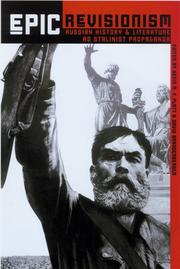
ISBN: 1282270052 9786612270055 0299215032 9780299215033 9781282270053 6612270055 0299215008 0299215040 9780299215002 9780299215040 Year: 2006 Publisher: Madison, Wis. University of Wisconsin Press
Abstract | Keywords | Export | Availability | Bookmark
 Loading...
Loading...Choose an application
- Reference Manager
- EndNote
- RefWorks (Direct export to RefWorks)
Popular culture --- Russian literature --- History in literature --- Propaganda, Soviet --- Communism and literature --- Ideology and literature --- Russia & Former Soviet Republics --- Regions & Countries - Europe --- History & Archaeology --- Political aspects --- History and criticism --- History --- History in literature. --- Communism and literature. --- Ideology and literature. --- History and criticism. --- Political aspects. --- Literature and communism --- Literature and ideology --- Soviet propaganda --- Culture, Popular --- Mass culture --- Pop culture --- Popular arts --- Communication --- Intellectual life --- Mass society --- Recreation --- Culture --- Literature
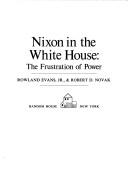
ISBN: 0394462734 Year: 1971 Publisher: New York Random House
Abstract | Keywords | Export | Availability | Bookmark
 Loading...
Loading...Choose an application
- Reference Manager
- EndNote
- RefWorks (Direct export to RefWorks)
History of North America --- American literature --- Nixon, Richard --- American literatureNixon, Richard
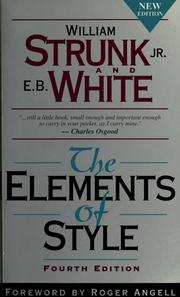
ISBN: 020530902X 0205313426 9780205309023 9780205313426 Year: 2000 Publisher: New York Longman
Abstract | Keywords | Export | Availability | Bookmark
 Loading...
Loading...Choose an application
- Reference Manager
- EndNote
- RefWorks (Direct export to RefWorks)
taalgebruik --- English language --- correspondentie --- stijlleer --- Engels --- Stilistics --- Anglais (Langue) --- Rhetoric. --- Style. --- Rhétorique --- Stylistique --- Report writing --- Rhetoric --- Style --- 681.3*A --- 681.3*A2 --- General literature --- Reference (e.g., dictionaries, encyclopedias, glossaries) --- Report writing. --- 681.3*A2General literature --- 681.3*A2 Reference (e.g., dictionaries, encyclopedias, glossaries) --- 681.3*A General literature --- -English language --- -Report writing --- 808.042 --- Research paper writing --- Research report writing --- Term paper writing --- Authorship --- Germanic languages --- Rhétorique --- English literature --- Metrics and rhythmics --- English language - Rhetoric --- English language - Style
ISBN: 9782844671325
Abstract | Keywords | Export | Availability | Bookmark
 Loading...
Loading...Choose an application
- Reference Manager
- EndNote
- RefWorks (Direct export to RefWorks)
Les trente dernieres annees ont vu l'effondrement de l'URSS, la dislocation de l'ex-Yougoslavie en plein coeur de l'Europe et de nombreux conflits plus eloignes de nous ont eclate sur differents continents. Ils temoignent non de la fin de l'Histoire, comme l'imaginaient certains comme Fukuyama, mais au contraire de l'acceleration de l'histoire. En ce tournant de millenaire, dans un monde globalise, caracterise par la decouverte de nouvelles technologies et par l'avenement de l'ere des reseaux, soumettant ainsi la planete a un flux rapide d'informations, on a vu apparaitre de nouvelles formes de guerres dans lesquelles la representation des conflits a change de nature. La communication etant aujourd'hui ouverte a tout un chacun, elle rend plus complexe la reception et l'interpretation des evenements historiques par les citoyens. L'approche pluridisciplinaire de ce livre a permis de rassembler chercheurs en sciences humaines et sociales, psychanalystes, philosophes, artistes qui, dans des essais ou des etudes plus scientifiques, tentent d'analyser les differents moyens de representation des guerres et des conflits (medias, litterature, cinema, BD, arts) et evoquent aussi leur impact sur les peuples. Ce theme est de plus en plus actuel car ces conflits se rapprochent dangereusement de nous, comme l'ont montre les recents attentats contre le journal satirique 'Charlie Hebdo' en plein Paris ou dans d'autres grandes metropoles du monde. Les quatre parties du livre nous entrainent de la Tchetchenie a l'Irak, de l'Afghanistan aux pays africains, en passant par Israel et la Palestine et proposent d'aborder les rapports entre guerre et ideologie, guerre et technologie, guerre, ethique et affect ainsi que, dans une quatrieme partie, guerre esthetique (dans le sens premier du terme, c'est-a-dire de ce qui releve de la science du sensible).
Fiction --- Narration (Rhetoric) --- Space in literature --- Narration --- Espace --- Analyse du discours narratif --- Technique --- Rhétorique --- Dans la littérature --- WAR
Book
ISBN: 9780812248777 Year: 2017 Publisher: Philadelphia : University of Pennsylvania Press,
Abstract | Keywords | Export | Availability | Bookmark
 Loading...
Loading...Choose an application
- Reference Manager
- EndNote
- RefWorks (Direct export to RefWorks)
As Islamist terrorism has ravaged the contemporary Middle East and led to sporadic attacks in Europe and the United States, countless journalists, pundits, and politicians have turned their attention to the question of what motivates those who commit violence in the name of political beliefs. Terrorism is not solely the preserve of Islam, however, nor is it a new phenomenon. It emerges from social processes and conditions common to societies throughout modern history, and the story of its origins spans centuries, encompassing numerous radical and revolutionary movements. Marc Sageman is a forensic psychiatrist and government counterterrorism consultant whose bestselling books Understanding Terror Networks and Leaderless Jihad provide a detailed, damning corrective to commonplace yet simplistic notions of Islamist terrorism. In his comprehensive new book Turning to Political Violence, he examines the history and theory of political violence. Sageman excavates primary sources surrounding key instances of modern political violence, looking for patterns across a range of case studies spanning the French Revolution, through late nineteenth- and early twentieth-century revolutionaries and anarchists in Russia and the United States, to the assassination of Archduke Ferdinand and the start of World War I. In contrast to one-dimensional portraits of terrorist "monsters" offered by governments and media throughout history, these accounts offer complex and intricate portraits of individuals engaged in struggles with identity, injustice, and revenge who may be empowered by a sense of love and self-sacrifice. Arguing against easy assumptions that attribute terrorism to extremist ideology, and counter to mainstream academic explanations such as rational actor theory, Sageman develops a theoretical model based on the concept of social identity. His analysis keys on the complex dynamic between the state and disaffected citizens that leads some to disillusionment and moral outrage, and a few to mass murder. Sageman's account offers a paradigm-shifting perspective on terrorism that yields stark new implications for the ways liberal democracies can and should confront political violence
German literature --- Music --- Romanticism --- History and criticism --- Political violence --- Radicalization --- Terrorism --- Terrorists --- Violence politique --- Terrorisme --- History. --- Psychology --- Histoire. --- Histoire
Book
ISBN: 9780745635743 9780745635736 Year: 2008 Publisher: Cambridge Polity
Abstract | Keywords | Export | Availability | Bookmark
 Loading...
Loading...Choose an application
- Reference Manager
- EndNote
- RefWorks (Direct export to RefWorks)
Journalism --- History --- Political aspects. --- JournalismHistory --- #KVHA:Media --- #KVHA:Journalistiek --- #KVHA:Politiek --- Press and politics --- Writing (Authorship) --- Literature --- Publicity --- Fake news --- Political aspects
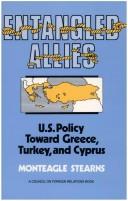
ISBN: 0876091109 Year: 1992 Publisher: New York Council on Foreign Relations Press
Abstract | Keywords | Export | Availability | Bookmark
 Loading...
Loading...Choose an application
- Reference Manager
- EndNote
- RefWorks (Direct export to RefWorks)
International relations. Foreign policy --- American literature --- Cyprus --- Turkey --- Greece --- American literatureCyprus --- Mediterranean region --- Foreign relations --- United States --- 1945-1989 --- Modat --- To 1945
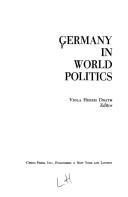
ISBN: 0915326132 Year: 1979 Publisher: London Cyrco Press
Abstract | Keywords | Export | Availability | Bookmark
 Loading...
Loading...Choose an application
- Reference Manager
- EndNote
- RefWorks (Direct export to RefWorks)
| Listing 1 - 10 of 23 | << page >> |
Sort by
|

 Search
Search Feedback
Feedback About UniCat
About UniCat  Help
Help News
News